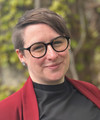
The President, the Press and the People: American History
OVERVIEW
Democracy is about ideas and narratives. Stories that provide a common set of facts, influence public opinion, and create majoritarian will. The President, the press, and the people are each primary authors of the American story. Whose version of events determines how Americans see themselves and how the world sees America?
Continuing our series on the future of democracy, the Salzburg Global American Studies Program explored the roles and relationships between the executive branch in the US, the international media, and citizens of global democracy. Given the variety of voices shaping the public’s imagination, how have citizens productively participated in democracy in the past? This “virtual town hall meeting” – the first of three – explored the presidency on through the lens of American history and society.
The multi-component program brought together a diverse interdisciplinary group from North America, Europe, South America, Africa and the Middle East, and Asia to identify and discuss the ways in which media coverage of the US presidency coincides and differs domestically and internationally. Participants analyzed which political, economic, and cultural trends the press chooses to highlight, monitor, and comment upon, in order to discuss how this influences world events, public response and the future of democratic institutions and civic engagement.
The public relies on the media to gain insight into how the president, and other world leaders, view key events, issues, and figures as well as how they use political, economic, and cultural crosscurrents to make policy choices. Nowadays, political leaders can speak directly to their public, engaging citizens in fresh ways or manipulating them to stoke grievance and division. Beyond the news, cultural representations of US presidents – real and fictional – have also long influenced how the world and the US views “leadership of the free world.” Other countries’ reactions to American presidential actions are influenced by their own national media markets and may in turn determine how those media report on their own heads of state.








































































- 60-minute virtual town hall meeting with Fellows and guest speakers
- Interactive “simulation” exercises will provide opportunities for Fellows to build relationships and exchange ideas while exploring multiple scenarios
- Adherence to the “Chatham House Rule” will enable all participants to speak freely
The 2021 activities will build momentum for a major in-person program at Schloss Leopoldskron, Austria, in summer 2022 to mark the 75th anniversary of the founding of Salzburg Global Seminar, which launched American Studies as an internationally recognized discipline in its own right.
The 2021 American Studies Program will bring together 30-50 Fellows from the US and around the world, representing a diverse mix of academic and non-academic fields. They will combine perspectives from arts and culture, social commentary, historical and geographical analysis, and politics, business, and economics. Fellows’ backgrounds may include but are not limited to journalists, diplomats, activists, entrepreneurs and program builders.
Town hall discussions will be captured and circulated in a dedicated quarterly American Studies newsletter, supplemented by interviews, features and Fellow-written op-eds.
Salzburg Global is leading a major non-partisan collaboration to help shape a future vision for American Studies in a radically changing world, with five specific goals:
- Catalyze leadership by universities and American Studies practitioners through rigorous interdisciplinary analysis of the integration and practice of current democratic principles.
- Activate cross-cutting networks of citizens, scholars and innovators working at the frontiers of democracy and inclusion in the United States and around the world.
- Incubate new ideas, research collaborations and cultural projects for dissemination through international American Studies associations and networks.
- Engage new and diverse publics in open dialogue across a variety of platforms, supported by innovative media products and virtual convening tools.
- Position Salzburg Global Seminar at the forefront of the future evolution of American Studies around the world to mark the organization’s 75th anniversary in 2022.